Kennesaw State students find path to sobriety and success
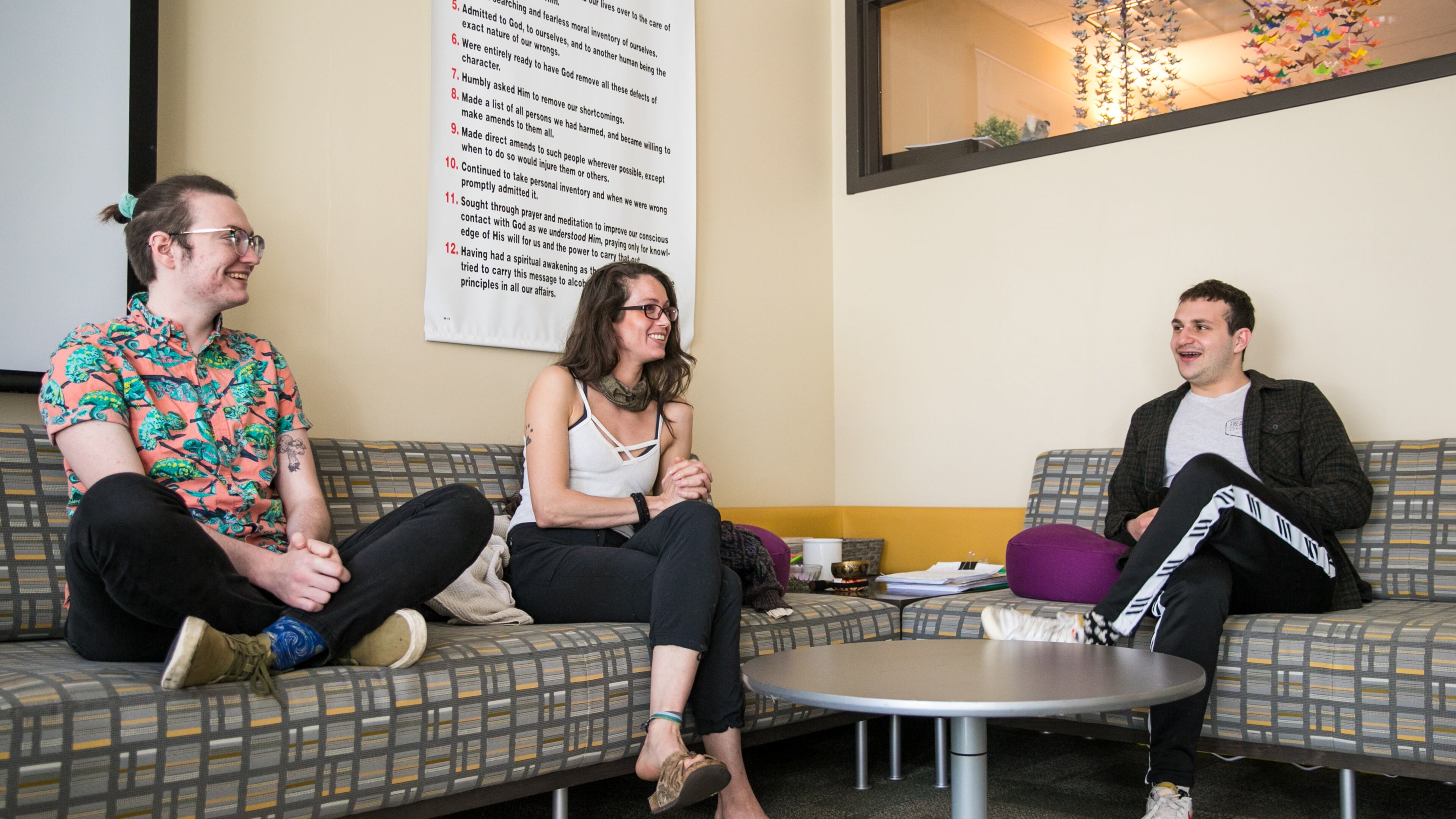
Kennesaw State University student Justin Schechter recently celebrated an important milestone: two years of sobriety.
The 23-year-old sophomore marked the moment one evening eating with a few friends at a Three Dollar Cafe near campus. Schechter, who is recovering from substance abuse disorder, joked he went to bed at “a reasonable hour” of 10:30 p.m.
“I don’t know how I would have been able to stay sober, happy and serene as I am now without the people here,” Schechter said, getting serious.
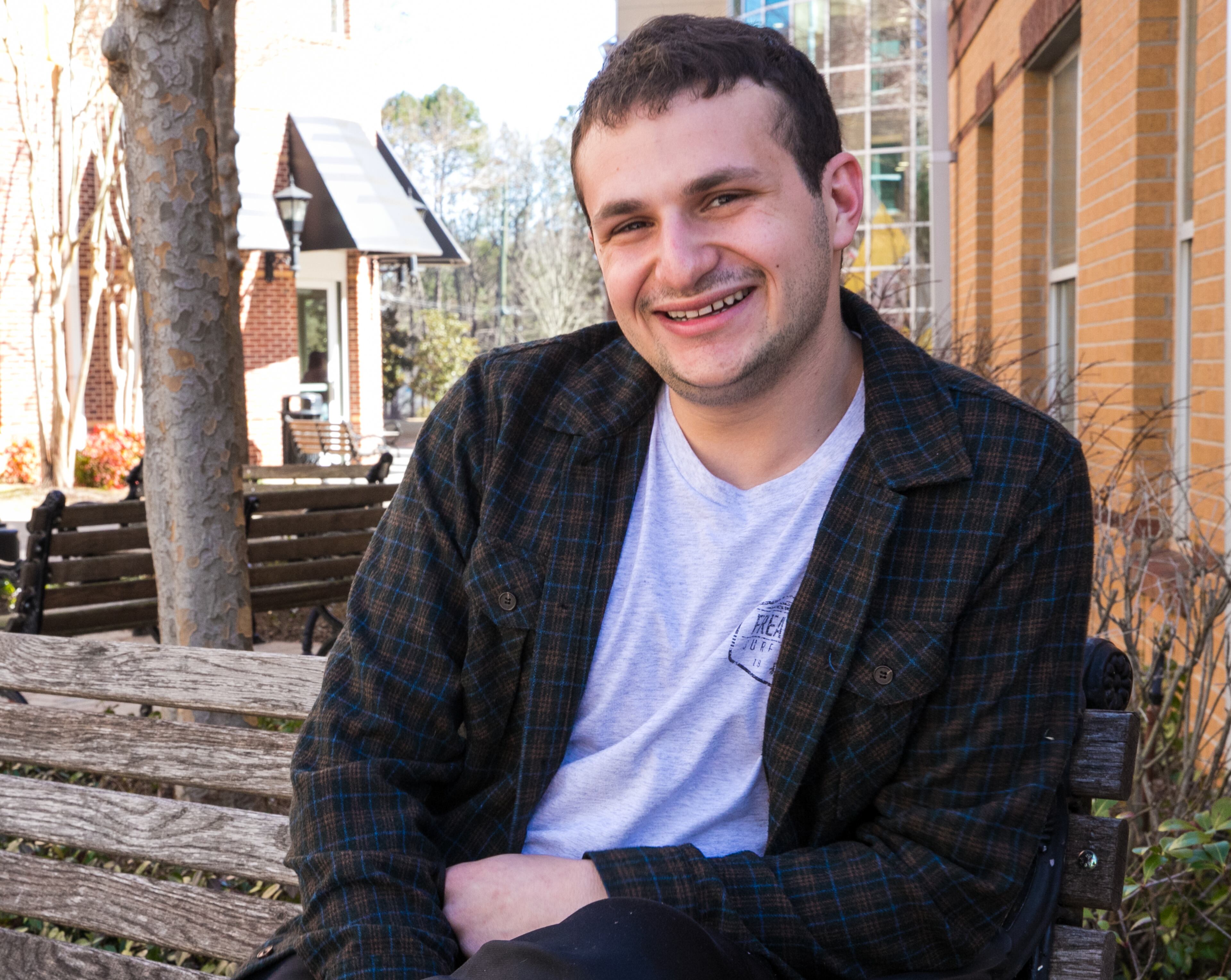
Schechter is one of several hundred KSU students who have benefitted through various campus substance abuse and recovery initiatives this school year. The university’s Center for Young Adult Addiction and Recovery, which started 15 years ago, is considered to be one of the oldest campus-based efforts in the southeast.
KSU officials say they’re seeing more students who need help for various disorders. The university’s enrollment has grown by 21%, to nearly 43,000 students, since 2018.
The increase in need for services reflects what federal statistics show is a record rise among college students in marijuana use, more students with eating disorders and using hallucinogens, such as LSD. While alcoholism has declined among college students, binge drinking remains high. About one-quarter of college students consumed five or more alcoholic drinks in a row in a prior two week stretch, according to a federal report published in September.
At KSU, about 70% of the students assisted are dealing with substance abuse issues, center officials say. Another 10% are battling eating disorders. The rest are attempting to recover from one or more addictions.
In January, Georgia public university system leaders invited a group of KSU officials and students to a meeting to discuss the campus efforts to help. KSU officials said in an interview the return-to-use rate for students in its Collegiate Recovery Program was 0% during the fall semester, the first time that’s happened in about five years. Their average return-to-use rate is about 5%, which officials said is below industry standards.
Helping students
For KSU, the work is important to the community and necessary for the university. Many students, like Frankie Berryman, drop out because of their addictions.
Berryman, 23, re-enrolled in 2020 after a three-year hiatus, and joined the center to seek help with substance abuse and eating disorders. KSU helped Berryman find ways to pay tuition. Berryman, who had a 0.4 grade-point average, also received peer-to-peer and other services that helped in the classroom. Berryman’s GPA is now 3.52.
“I am a better friend, peer, student and person because of these programs,” Berryman said at the meeting.
Addiction often starts in adolescence. For some, it’s a result of experimentation. For other young people, it begins as teenage rebellion. Some are pressured by friends or adults into substance use. Others use addictive substances because of anxiety disorders or mental health issues.
KSU counselors and others saw the need for comprehensive campus services more than a decade ago. There were some recovery programs helping young people in Cobb and Cherokee counties, recalled Teresa Wren Johnston, the center’s executive director and KSU’s assistant vice president for student affairs. Johnston and others approached university administrators with a plan to provide more services on campus. KSU officials said yes.
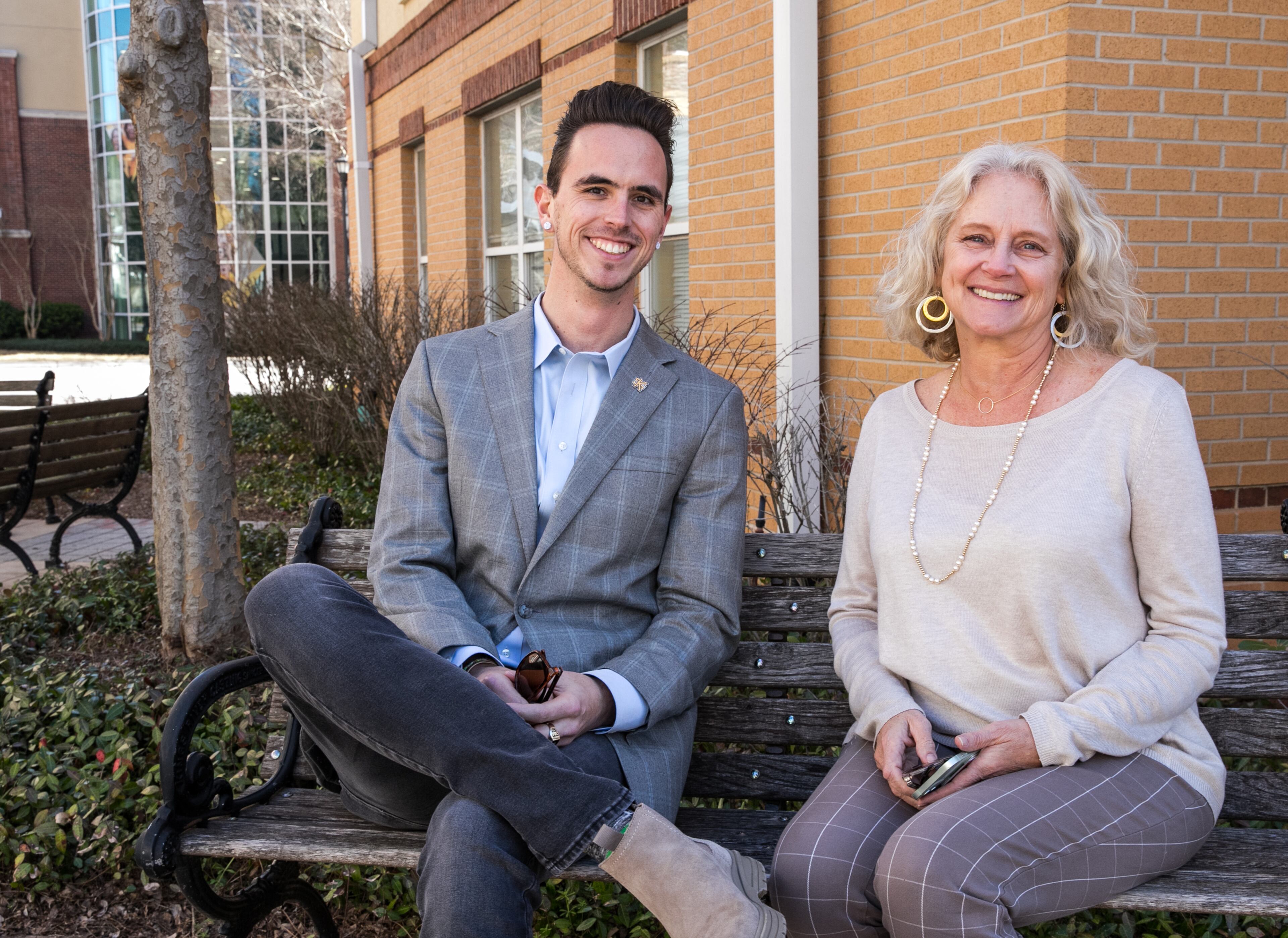
Living their best lives
The center offers meetings for alcohol, cocaine and other forms of addiction. There are sessions for adulting, overcoming anxiety and yoga classes for students recovering from eating disorders. Students are pushed to set goals.
Socialization is an important part of the college experience. The availability of alcohol or drugs at parties can make it difficult for students in recovery to overcome their addictions on campus. KSU workers help find ways for students to have forms of healthy interaction. Students use games — Dungeons & Dragons is a popular one — to meet and talk. The game also helps the recovering students hold each other accountable. If someone hasn’t done their homework, they don’t get to play.
Honesty and acceptance are other important principles for students. When a student returns to use, officials say there’s no judgment. It’s time to help.
“Our goal is for them to leave us and be fully equipped to live their best lives outside of here,” said Jessica McDaniel, the center’s assistant director.
The coronavirus pandemic required changes to KSU’s treatment services. Counseling was initially done online. In some cases, students were partnered with new counselors who were unfamiliar with each student’s disorders. The pandemic also required KSU to close its recovery housing units. The KSU team is looking for recovery housing, along with scholarships.
One of the center’s offices is located at the bottom of a five-story student housing complex near a roundabout on the north end of the Kennesaw campus. A long, narrow hallway with fliers about upcoming meetings leads to spacious rooms where students and counselors meet. Several dozen handwritten messages written with markers in different colors appear on one of the walls in a meeting room.
It’s not going to be ok. It is ok.
Let go and let God.
Everybody needs a treat yourself day.
Taking care of yourself isn’t selfish.
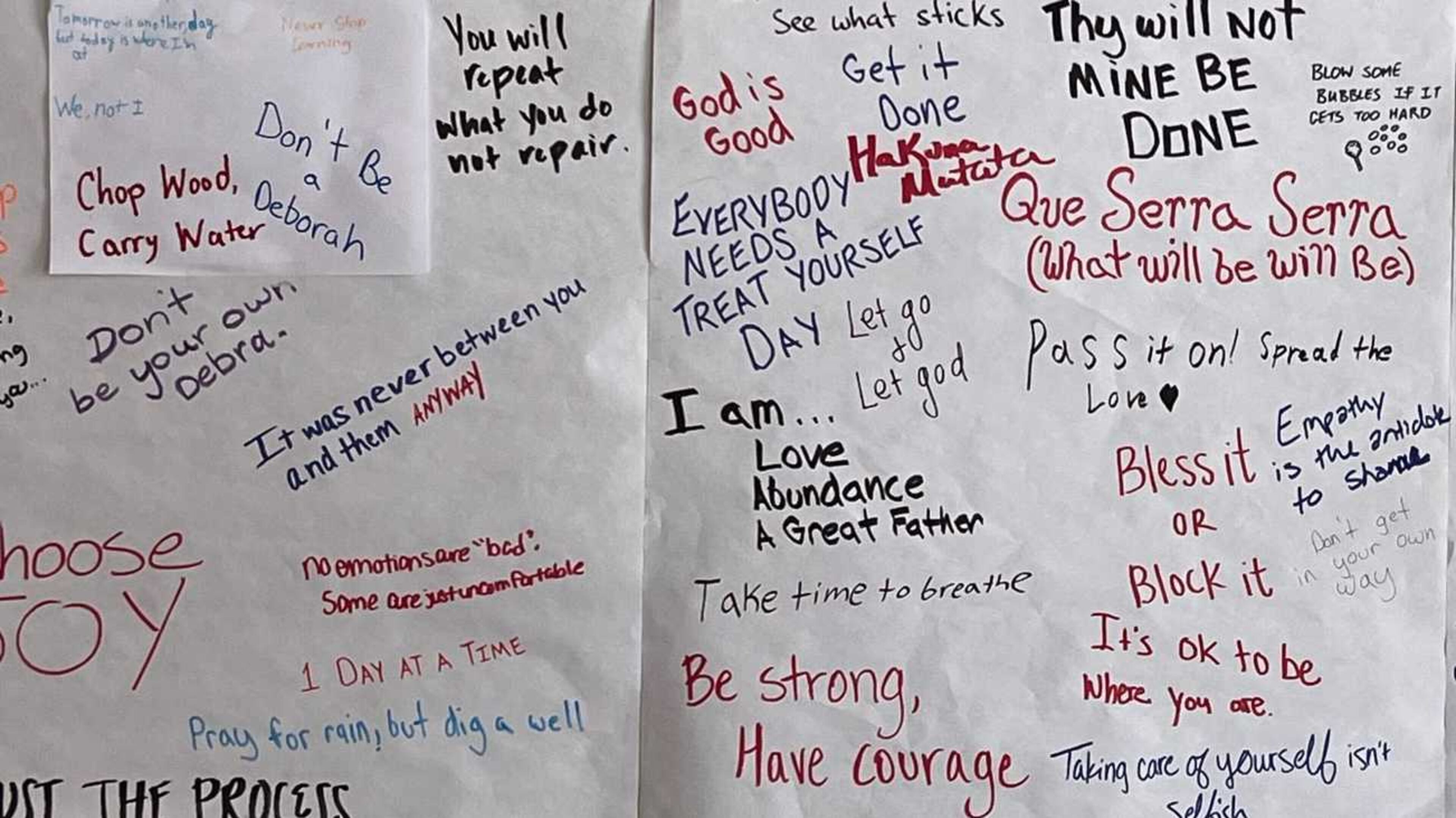
A few days before spring break, three students gather in the room. The students seem to be walking on air.
Part of their enthusiasm stems from a spring break trip they’re taking together, where they will meet with students in recovery from other states. The unseasonably warm weather has heightened their excitement about the getaway. They teased each other about everything.
Checking in
They stop momentarily to do a “check-in,” a seminar to see how they’re doing.
Kevyn Wakefield, a senior majoring in psychology, went first, providing an update on her substance abuse recovery.
Wakefield, 33, a mother of a 2-year-old girl, dropped out of KSU in 2015. Her grades were low and she unsuccessfully tried several times to get sober. Wakefield returned to KSU in 2020 after talking to friends in a recovery program who spoke positively about the center. Still, she was reluctant to re-enroll because of her low GPA and being an older student.
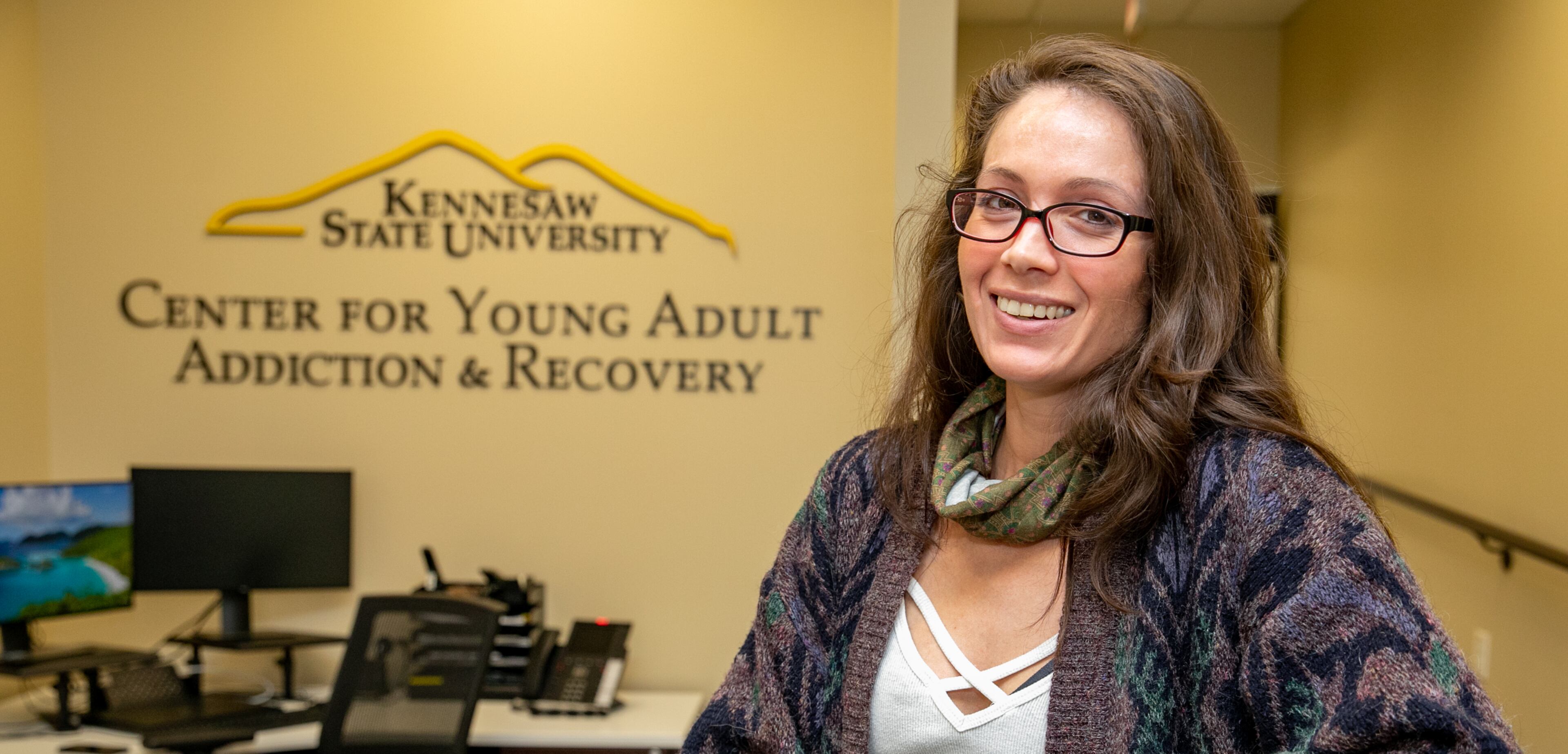
“The amount of support and encouragement that they provided to me to help initiate the entire process ― to reapply, to find funding as well as scheduling classes — instilled a sense of confidence that I did not have,” she said in an interview.
Wakefield is now a student assistant at the center.
Schechter went next.
“My name is Justin and I’m an alcoholic,” he began.
Last weekend wasn’t good, he said. Schechter was anxious about a midterm exam. He believes he did better than he thought. He’s eager for “a break” from school.
Berryman spoke next. He is on track for straight As this semester.
“Whoo!,” the group responded.
Berryman, who grew up in Kennesaw, overdosed in 2014 and spent three days in ICU, and then two months in a treatment program.
He transferred from Chattahoochee Technical College to KSU in 2016, but struggled with substance abuse. He drank heavily and “took whatever substances I could get my hands on.”
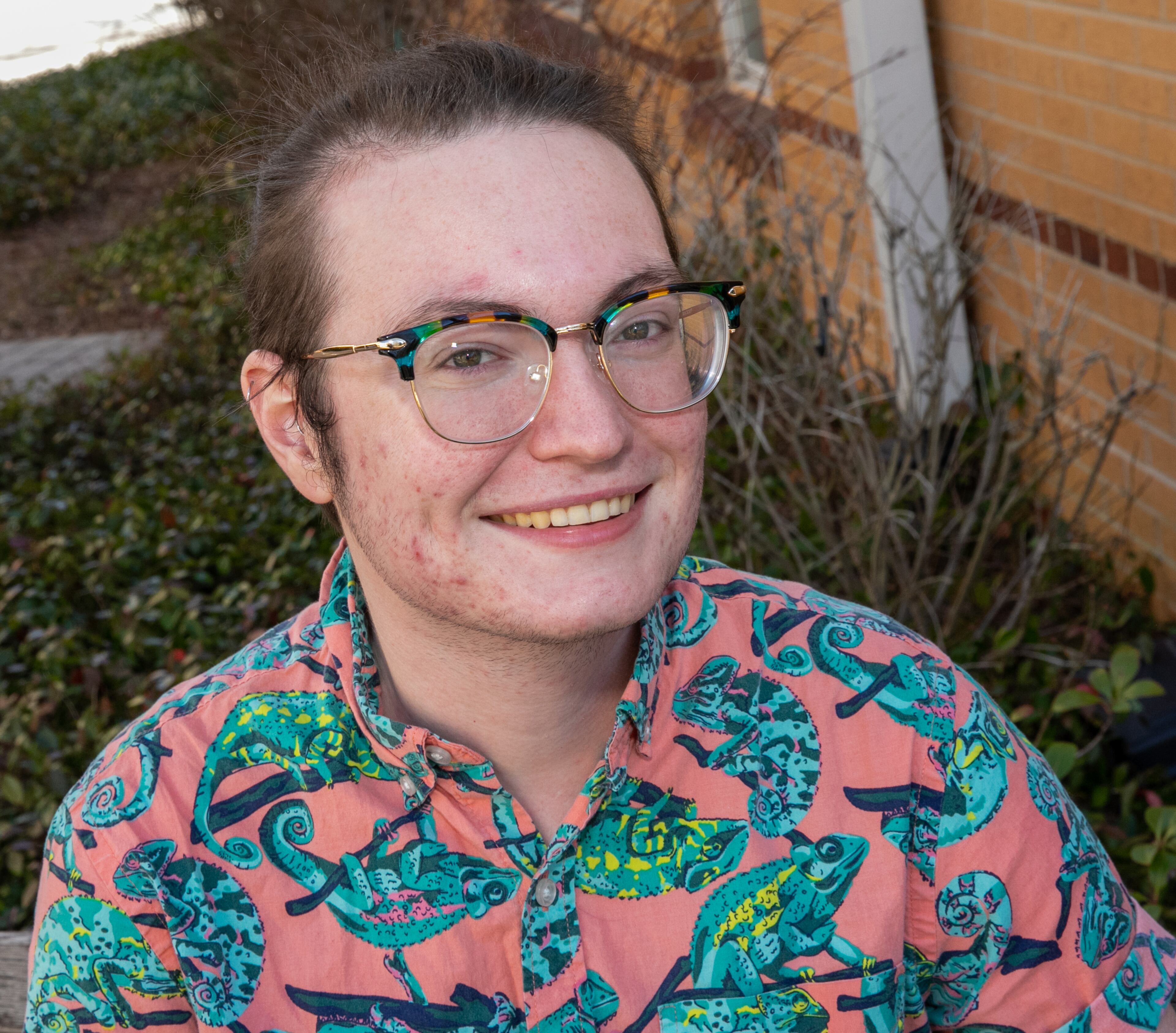
A year later, he dropped out and was homeless.
His struggles included identity. Berryman is nonbinary and transgender and, for years, was reluctant to tell others. He uses he/they pronouns.
A friend helped him get a job at Starbucks and a co-worker mentioned KSU’s recovery center. He attended some seminars and in 2019 was encouraged to re-enroll. Berryman relapsed, but returned to KSU a few months later.
He focused on going to class. The center helped him get financial aid and find an addiction counselor.
On Nov. 9, seven years after the overdose, Berryman’s name change process was complete. In many respects, he is a new person.
He has been sober since Jan. 6, 2020.
“Not yet, and hopefully not ever,” he said when asked if he has relapsed.
“Not today at least,” he continued. “Not today.”
Substance abuse and college students
- Annual marijuana use on campus has increased by 6 percentage points in the last five years, to 44% — a record high, according to federal data.
- In 2020, nearly 9% of college students reported the use of any hallucinogens, such as LSD, in the past year compared to 5% in 2019.
- About 25% of college students said they engaged in binge drinking in the prior two weeks, the federal data shows.
- Eating disorders among college students are increasing, up to 20% among women, according to some research.
Sources: National Institutes of Health, Addiction Group.



